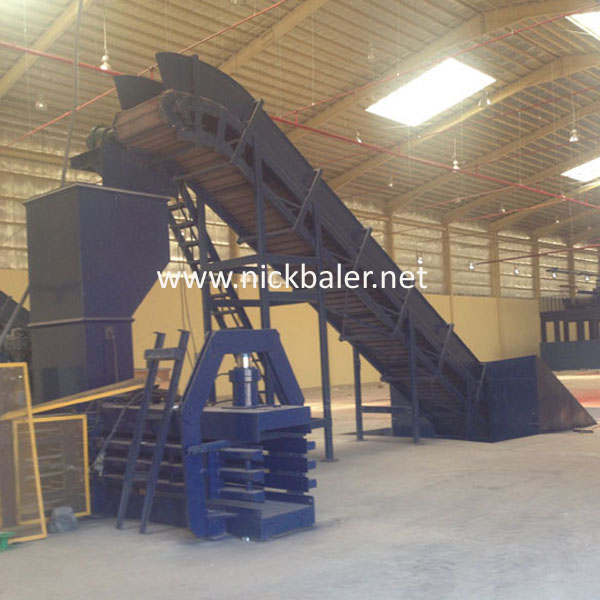How to perform after-sales maintenance on the automatic hydraulic waste paper baler
The automatic hydraulic waste paper baler is a device used to compress waste paper, cardboard and other materials. It is widely used in recycling stations, paper mills and other industries. In order to ensure the normal operation and service life of the equipment, after-sales maintenance is very important. The following are the after-sales maintenance methods of the automatic hydraulic waste paper baler:
1. Regular inspection: Users should regularly inspect the equipment, including hydraulic systems, electrical systems, transmission systems, etc., and deal with problems in a timely manner to avoid affecting production.
2. Keep it clean: During use, the equipment should be kept clean to prevent debris from entering the inside of the equipment and affecting its normal operation.
3. Replace the wearing parts: After the equipment has been running for a period of time, some wearing parts may become worn, such as sealing rings, filter elements, etc., and should be replaced in time to avoid affecting the performance of the equipment.
4. Lubrication and maintenance: Each moving part of the equipment should be regularly filled with lubricating oil to reduce wear and extend the service life of the equipment.
5. Professional maintenance: If the equipment fails, users should contact the manufacturer or professional maintenance personnel for repairs in time. Do not disassemble the equipment by yourself to avoid causing greater damage.
6. Train operators: Operators should receive professional training and be familiar with the operation methods and precautions of the equipment to ensure the normal operation of the equipment.
7. Establish maintenance files: Users should establish maintenance files for the equipment to record the use of the equipment, maintenance records, etc. for subsequent repair and maintenance work.

Through the above methods, after-sales maintenance of the automatic hydraulic waste paper baler can be effectively carried out to ensure the normal operation of the equipment and improve production efficiency. At the same time, users should also maintain good communication with manufacturers and keep abreast of the use of equipment in order to provide better after-sales service.

*Leave a message to get a quotation